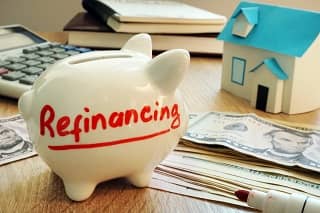Q: I refinanced an investment property at a 4 percent, 30-year fixed mortgage rate. My rate was locked in for 30 days. Since my loan has not yet closed and the 30 day lock period has expired, am I able to re-lock in at a lower rate if rates have dropped? My loan officer claims my 30 day rate was extended 2 weeks at the original rate. This was done without my knowledge or consent.
A: A lock-in agreement sees that both you and the mortgage lender agree to a specific interest rate for a given period of time. Generally, you'll lock the rate because you want protection against a rise in interest rates should an increase occur during the time your loan is being processed.
Unless you previously arranged for a float-down option, where you specifically reserved the right to obtain a lower interest rate if market rates declined during the period from when you applied to the time your loan was close to closing, the lender is under no obligation to offer you a lower rate. Float-down options are fairly common, but not free, as they can carry a fee ranging from a few hundred dollars to as much as 0.25 percent of the loan amount. This would have provided you an opportunity to re-lock at a lower rate.
It is within the lender's rights to extend the term of the lock, especially if there is no cost or additional obligation to you. This most often occurs where only a short-term delay in closing is expected.
Had interest rates had risen during the period, and your rate lock had expired for some reason, you would certainly be interested in having the lender extend it for your benefit.
If the lender won't negotiate with you, it of course is within your rights to cancel the loan entirely. However, you will generally lose any monies you have paid to the lender already, and unless market rates are substantially below where you began, recovering that loss by getting a new, lower-rate loan from a new lender (with new fees) may prove difficult.



